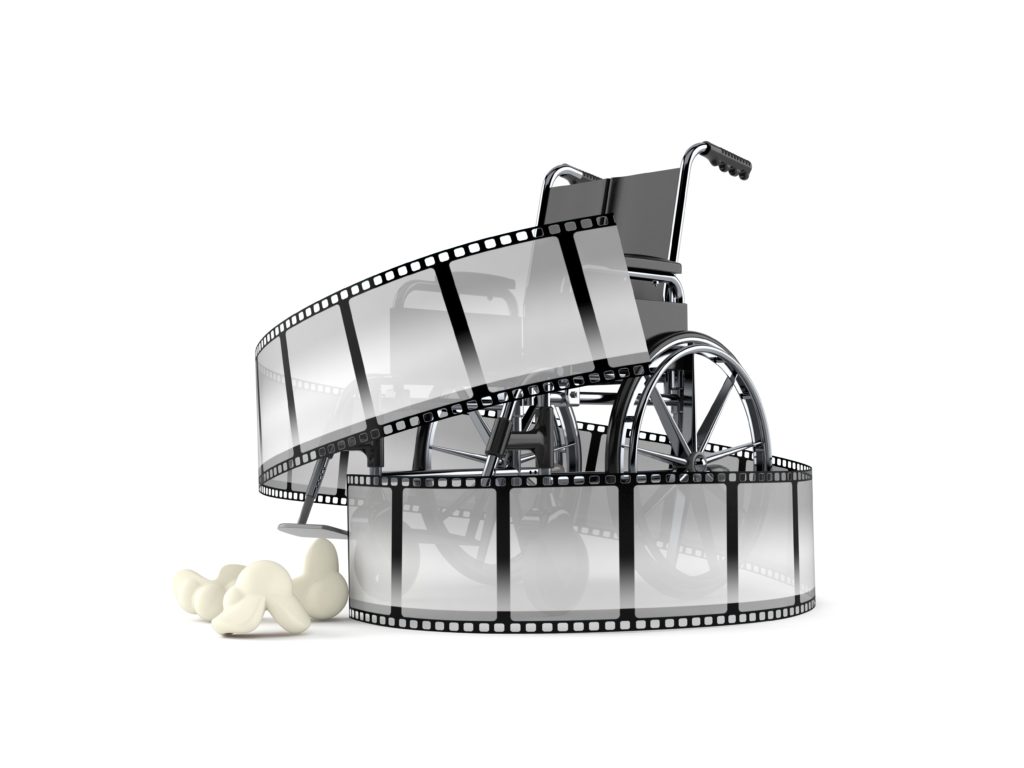Disability Representation in Film…Documentaries Are a Great Choice!
Movies. They can entertain, move us, and make an impact. They can also show representation. Seeing someone that looks like us or someone with a similar life experience provides an instant connection.
For individuals with disabilities, this is often lacking in films.
A report released by the Geena Davis Institute on Gender in Media at Mount Saint Mary’s University shows that in 2019, 8% of movies featured a lead with a disability. Although a historical high, this percentage shows there is still a long way to go. In addition, characters with disabilities are often stereotyped. They are either “overcome by their suffering” (p.6) or “heroically and heartwarmingly overcoming their disability” (p.6).
A great way to see representation – the good, the bad, and the ugly – is through documentaries.
People connect with documentaries in a meaningful way. For those with disabilities and their families, they can see themselves. Those not touched by disabilities can learn something new, aiding in inclusivity.
Whether you are looking for representation or a better understanding of disabilities, here are seven documentaries to get you started.
- Autism the Musical (TV-14; 1 hour 34 minutes)
Released in 2007, we follow five children with autism and their families preparing for a musical through The Miracle Project. A fully inclusive theater, The Miracle Project strengthens skills and celebrates abilities.
- Autism the Sequel (Not Rated; 40 minutes)
Released in 2020, Autism the Sequel revisits the children and families from Autism the Musical twelve years later. Once young children, we now see young adults living on their own, excelling in music, attending college, and more!
- How to Dance in Ohio (TV-G; 1 hour 29 minutes)
Set in Columbus, Ohio, this film follows individuals on the autism spectrum preparing for a spring formal. Over 12 weeks, we see individuals practicing their social skills, buying dresses, asking others to the dance, and more.
- I Can’t Do That, But I CAN Do This (Not Rated; 31 Minutes)
This short documentary features children with learning differences such as ADD/ADHD, Audio Processing Disorder, Dyscalculia, Dyslexia, and Sensory Processing Disorder. We see the struggles that come with these differences. We also witness, however, the gifts these children possess. Talents include dancing, singing, riding dirt bikes, art, and poetry.
- Miss You Can Do It (Not Rated; 1 hour 15 minutes)
The Miss You Can Do It pageant was started in 2004 by Abbey Curran, an individual with Cerebral Palsy and an amazing story! The film shows girls with disabilities and their families preparing for, and enjoying, a day of positive attention. The pageant focuses on the girls’ gifts and not their disabilities.
- Rising Phoenix (PG-13; 1 hour 45 minutes)
First held in 1960, Rising Phoenix focuses on the Paralympic games. Through conversations with athletes and insiders, we get a glimpse of the incredible games that follow The Olympics. Prepare for goosebumps and tears throughout the film!
- Thriving with Cerebral Palsy: The Cordell Brown Story (Not Rated; 42 Minutes)
This documentary focuses on the life of Cordell Brown. A man with determination, grit, and the ability to not accept “no” as an answer. A man that founded Echoing Hills 55 years ago! A great watch to see the man behind our ministry.


